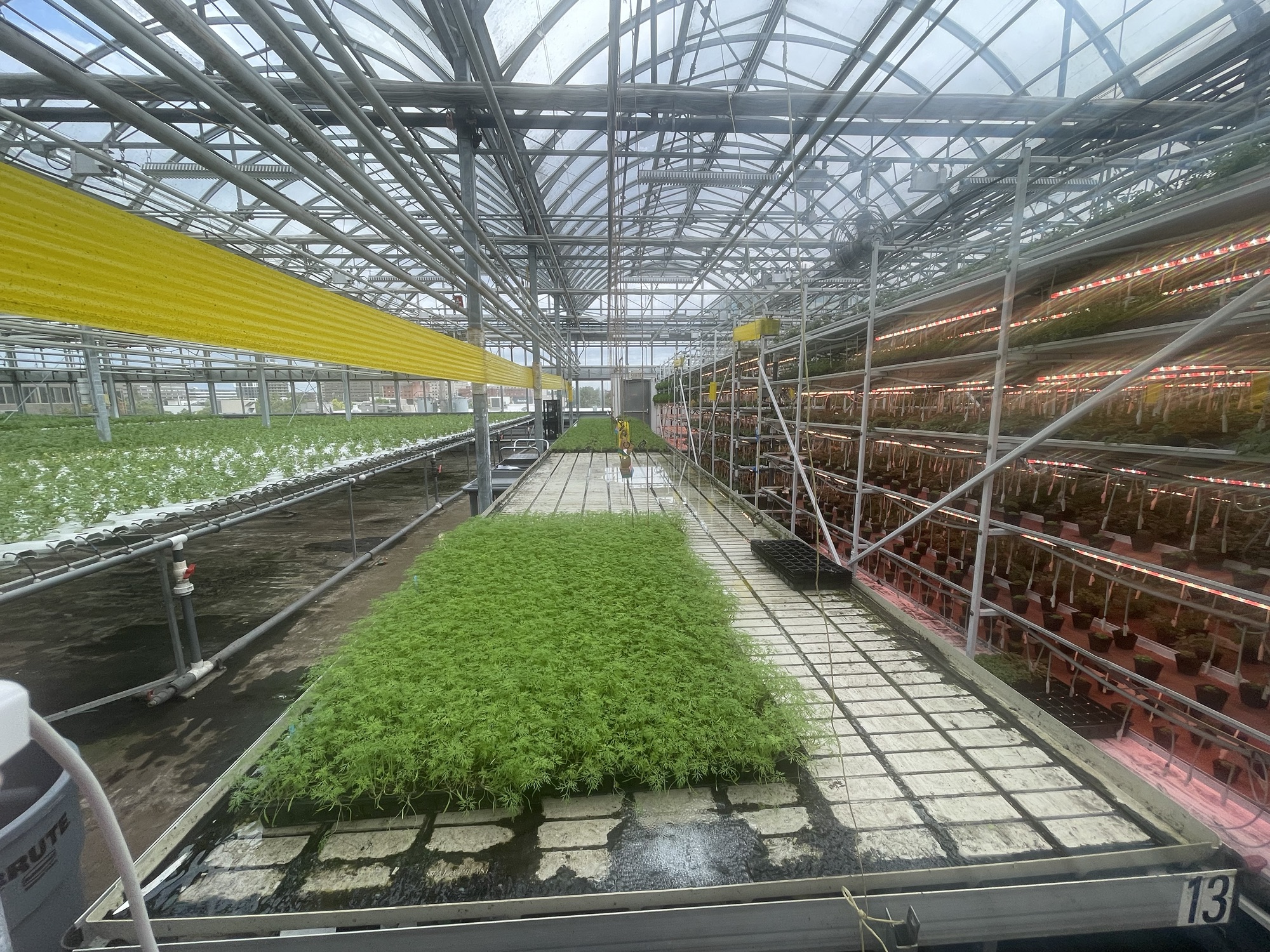Rooftop Farming for Sustainable Cities
Lufa Farms has transformed Montreal’s Skyline by introducing commercial rooftop farming, turning previously unused spaces into vibrant greenhouses. Their model proves that cities, which are typically seen as centres of consumption, can also be centres of production. By utilizing urban rooftops, Lufa reduces the need for long-distance food transportation, cutting down on carbon emissions and providing fresher produce to city residents.

Technological Innovations in Urban Agriculture
During my visit to Lufa’s rooftop greenhouse, I was amazed by their use of advanced technologies, from climate control to water recycling systems. The farm operates two systems to maximize efficiency of production of different crops: a controlled 25-degree environment for growing aubergines, and another dedicated to micro-greens. This level of forward-thinking technology closely resonates with Leedana’s mission of integrating water-efficient solutions in sandponic farming. Lufa’s work demonstrates how technology can transform urban farming, inspiring us as we adapt these principles to farming in dry, remote areas.

Water Recycling: A pillar of Sustainable Farming
Lufa Farms is committed to resource conservation, they manage to retain 90% of the water they collect, with only 10% lost to evaporation. They even have initiatives helping to capture and recycle rainwater for irrigation. This commitment to sustainability closely aligns with Leedana’s goals for sandponics, where maximizing water efficiency in dry, remote areas is critical.

Vertical vs. Horizontal Growing Systems
While most of Lufa’s farms prioritize vertical growing to make the most of limited urban space, their Ahuntsic, Anjou, and Indoor farms utilize horizontal growing systems. These farms experiment with horizontal hydroponic channels in certain greenhouses, allowing for the cultivation of a variety of crops, from tomatoes to lettuce, while optimizing space usage. On the other hand, Lufa’s Laval, VSL, and Marché Central farms focus on vertical growing systems, maximizing production capacity in limited space.
Sustainable Practices Rooted in Nature
Lufa’s approach to sustainability goes beyond technology. They apply nature-friendly solutions, such as using beneficial insects to control pests, a practice that avoids the use of harmful chemicals. Lufa Farms also tackles food waste with their “panier anti-gaspillage” (anti-waste basket) initiative. This program repurposes unsold or cosmetically imperfect produce, offering items that are nearing expiration, slightly damaged, or less visually appealing, yet still perfectly good to eat, at a discounted price. By doing so, they ensure that edible food doesn’t go to waste, while also promoting affordable access to local, fresh produce.

Energy and Climate Control
Each season, Lufa adapts its climate control systems to maintain optimal conditions for plant growth. During the summer, the building’s cooling system prevents high temperatures, while in winter, heat generated by the building below is channeled to keep the rooftop greenhouses warm. This efficient use of energy aligns with Leedana’s vision for creating desert farms that are resilient to extreme climates, optimizing energy usage to produce food in difficult environments.
The Cost and Scale of Urban Farming
Scaling up urban farming is no easy feat. Lufa’s newer farms, like the Ville Saint-Laurent facility, cost millions of dollars to construct, with the most advanced greenhouses using artificial lighting and other high-tech solutions to ensure year round production. Despite the upfront costs, this specific farm have significantly boosted Lufa’s ability to meet the city’s food needs, now nourishing 2% of Montreal’s population with fresh produce. Leedana’s efforts to replicate this model in remote towns aim to create a similarly profound impact on local food systems.
Building Sustainable Food Systems through Collaboration
Lufa Farms has built a strong local network by collaborating with other small-scale farmers and producers. This ensures their supply chain remains sustainable while keeping fresh, local produce affordable for city residents. Their commitment to collaboration mirrors our goal at Leedana to foster a similar network for sandponic farms globally. By connecting farms worldwide, we aim to create a community where water-efficient farming can thrive in diverse environments.

Learn more about LufaFarms

